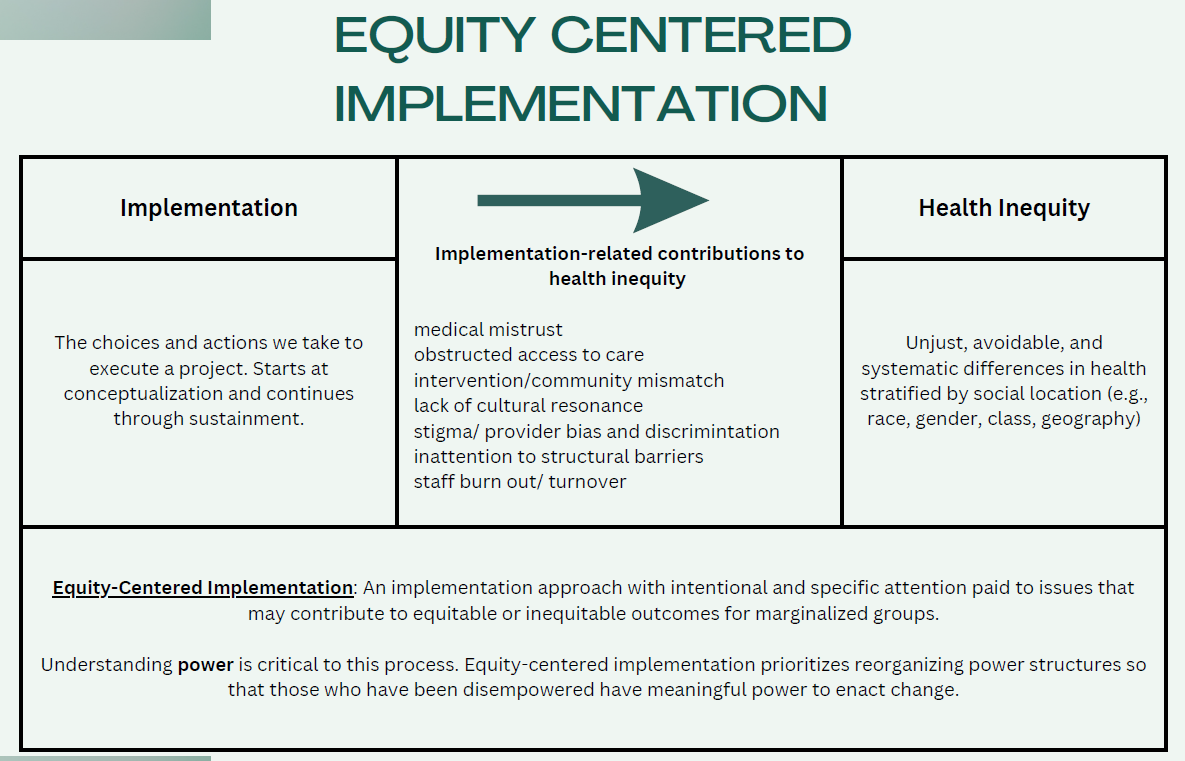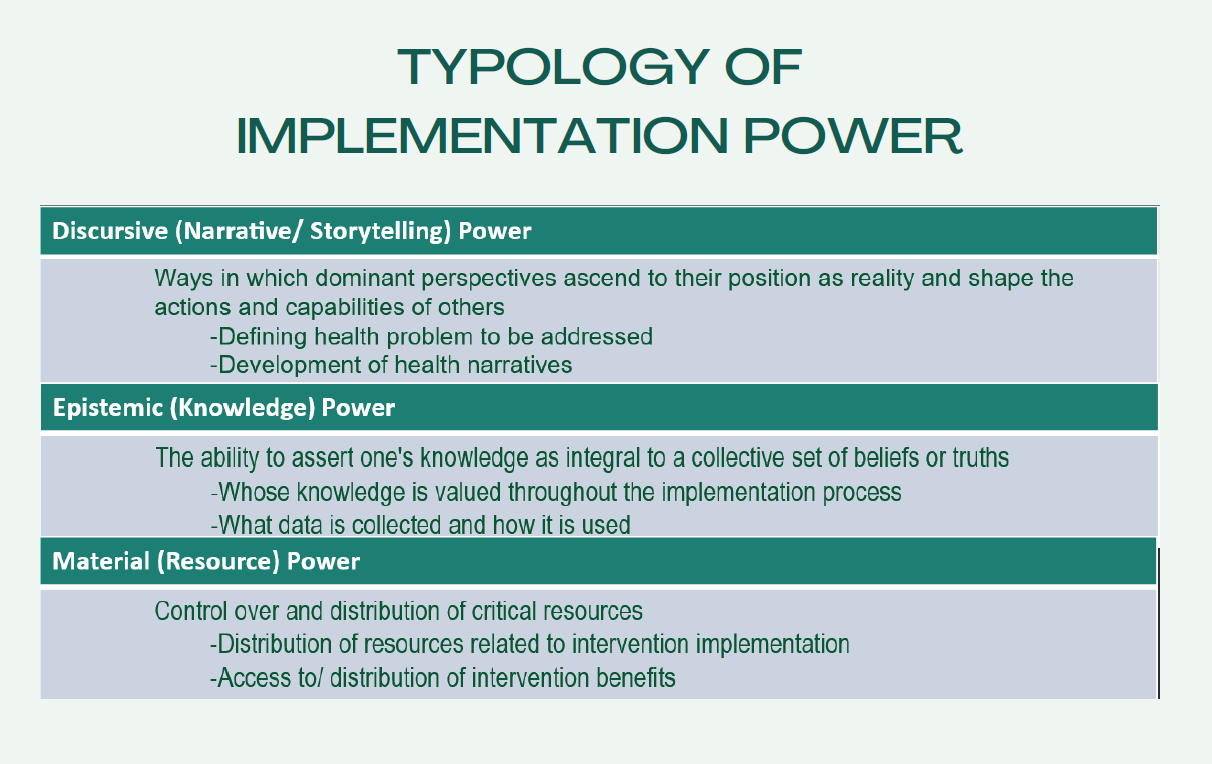PUBLICATIONS
Advancing a conceptual model of evidence-based practice implementation in public service sectors
This paper proposes the original EPIS framework, a
multi-level, four phase model of implementation process
(i.e., Exploration, Preparation, Implementation,
Sustainment) and outer and inner context factors.
EPIS ADVANCEMENTS
Stanton, M., Ali, S.B., & the SUSTAIN Center Team. (2022). A typology of power in implementation: Building on the exploration, preparation, implementation, sustainment (EPIS) framework to advance mental health and HIV health equity. Implementation Research and Practice, 3(Jan-Dec), 1–16.
EPIS Systematic review
Moullin, J. C., Dickson, K. S., Stadnick, N. A., Rabin, B., & Aarons, G. A. (2019). Systematic review of the exploration, preparation, implementation, sustainment (EPIS) framework. Implementation Science, 14(1), 1-16.
Effective implementation of evidence-based practices (EBPs) remains a significant challenge. Numerous existing models and frameworks identify key factors and processes to facilitate implementation. However, there is a need to better understand how individual models and frameworks are applied in research projects, how they can support the implementation process, and how they might advance implementation science. This systematic review examines and describes the research application of a widely used implementation framework, the Exploration, Preparation, Implementation, Sustainment (EPIS) framework.
EPIS BOOK CHAPTER
Moullin, J.C., Dickson, K., Stadnick, N., Becan, J.E., Wiley, T., Phillips, J., Hatch, M., & Aarons, G.A. (2020). Exploration, Preparation, Implementation, Sustainment (EPIS) Framework. In Nilsen, P. and Birken, S. (Eds.), Handbook on Implementation Science. Edward Elgar Publishing Ltd., Cheltenham, U.K.
The EPIS Framework has been disseminated, adopted, and used in diverse health, allied health, and social care settings both domestically and abroad. Below on this page are links to some publications that used or cited EPIS, or influenced EPIS development.
QUALRIS workgroup: Qualitative research in implementation science. National Cancer Institute; 2017.
Aarons G: Organizational Climate for Evidence-Based Practice Implementation: Development of a New Scale. Proceedings of the Annual Association for Behavioral and Cognitive Therapies: November 2011; Toronto 2011.
Green L, Kreuter M: Health program planning: An educational and ecological approach. Boston: McGraw Hill; 2005.
Klein KJ, Sorra JS: The challenge of innovation implementation. Acad Manage Rev 1996, 21:1055-1080.
Bass BM, Avolio BJ: The multifactor leadership questionnaire. Palo Alto, CA: Consulting Psychologists Press; 1989.


